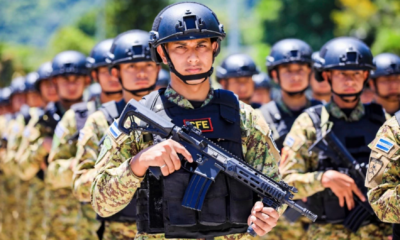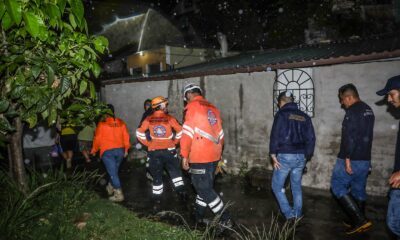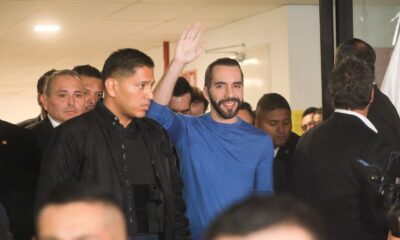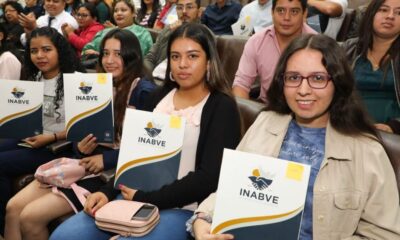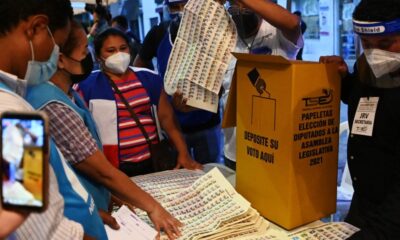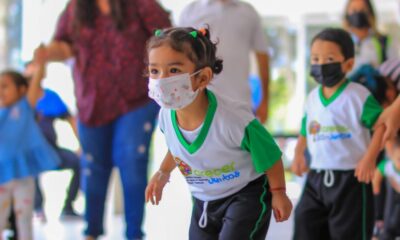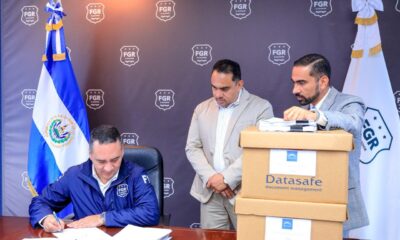Central America
Young person will represent El Salvador at International Chemistry Olympiad in Switzerland
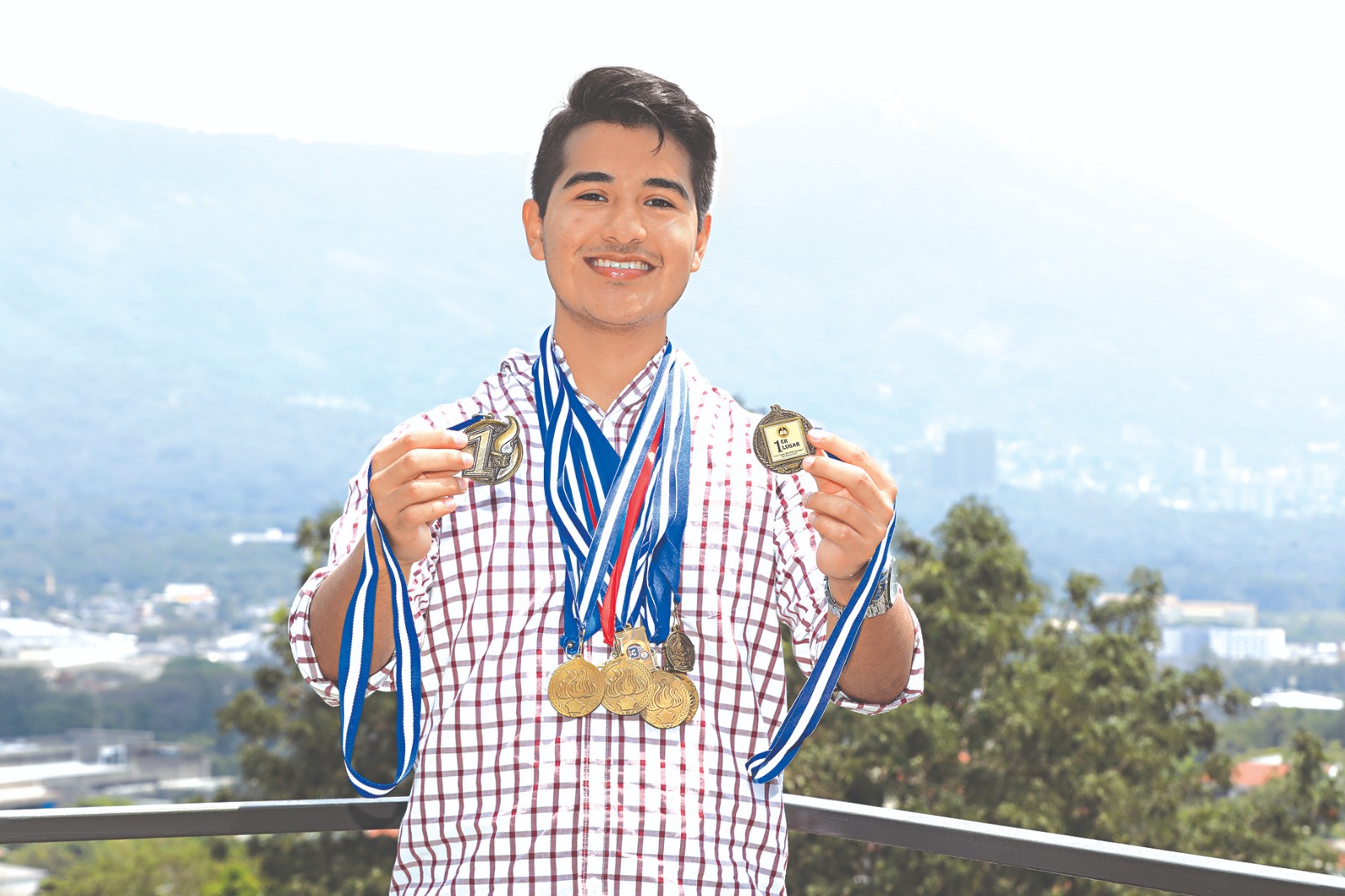
May 29 |
At the age of 18, Luis Ronaldo Chávez Escamilla is one of the three young people in the delegation that will represent El Salvador at the International Chemistry Olympiad.
The 55th edition of the international competition will take place from July 16 to 25 in Zurich, Switzerland.
“For me it is one of the most important things in my life. I see it not only as an academic achievement, but as a life experience. They have been shaping me as a person and have helped me discover what I am passionate about and what I want for my future,” she said.
He added that around 84 countries will participate in the Olympics, with approximately three to four representatives per country. There will be an average of 300 contestants in total.
This represents a challenge for the young man, who since he applied for the competition has dedicated himself to preparing for it. Luis is part of the Jóvenes Talento program, where he receives “training”, as he calls the classes. At home he also spends time solving math problems.
“It is the most difficult and needs many months of preparation, but this year, as I have already finished high school, I have dedicated myself to prepare for this; it is quite demanding,” he said.
His participation in the Olympics is part of his academic record. Luis, who since he was a child was very diligent in his studies, has competed in three more Olympiads, two of which are international and one national.
“Since I was a child I liked mathematics very much, but I had never discovered my passion as such, until fifth grade, when my dad came with the newspaper. Before, the National Math Olympiad was published in the newspaper and people who wanted to participate in the program had to solve certain problems and exams,” he told “Diario El Salvador”.
When he was 12 years old, his father came with the newspaper and proposed it to him as a challenge. With some trepidation she took the exams. “I passed the first stage and that’s when it caught my attention even more. I passed the second stage and qualified. That’s when I realized that I really had talent in the area of numbers,” he added.
In seventh grade, the young man took the exams for the Salvadoran Chemistry Olympiad (OSQ) for the first time. After his participation, he was able to enter the chemistry group in the Jóvenes Talento program.
“From seventh grade onwards, they allow participation in certain Olympic groups in each area of science. I was always interested in chemistry. My first class in the program was chemistry. In that group there are three levels: elementary, intermediate and advanced. Over the years I have moved up through the levels. Now I am in the advanced level, which is the highest level. Being part of these groups gives you the opportunity to take selective exams of all the classmates classified to participate in these international olympiads,” he said.
In 2021 and 2022 he had the opportunity to participate in the Salvadoran Olympiad and the Ibero-American Chemistry Olympiad. Although everything was virtual, due to the COVID-19 pandemic, he won two bronze medals. A third silver medal was obtained by participating in the World Applied Chemistry Olympiad (WAChO), organized by the Indonesian scientific society.
According to the young man, he participated in the last Olympiad with a research project: “I won my silver medal with the sustainable chemistry project, which is the generation of electricity from wastewater,” he said.
In 2022, Luis won a half scholarship to study at the Monterrey Institute of Technology, a prestigious study center in Mexico, after obtaining a high score in the academic aptitude test.
Central America
U.S. revokes visas of top Costa Rican lawmakers and constitutional judge

The United States government has revoked the visas of Rodrigo Arias, president of Costa Rica’s Legislative Assembly, and Paul Rueda, a justice of the Constitutional Chamber, expanding the list of Costa Rican officials affected by such measures in 2025.
The Constitutional Chamber confirmed the cancellation of Justice Rueda’s visa but stated it would not issue further comments. Meanwhile, local media reported the case of Rodrigo Arias, who has led the Assembly for the past three years and maintained a critical stance toward President Rodrigo Chaves’s administration.
Visa revocations against Costa Rican political figures began following a visit by U.S. Secretary of State Marco Rubio to San José in February. During the trip, Rubio warned of potential sanctions against those collaborating with foreign actors that could pose a risk to U.S. cybersecurity.
While in Costa Rica, Rubio praised President Chaves for halting Chinese companies’ involvement in major tech infrastructure projects, including the development of 5G networks.
Since then, the U.S. has also revoked visas of lawmakers Francisco Nicolás (National Liberation Party), Johana Obando and Cynthia Córdoba (Progressive Liberal Party), as well as Ana Sofía Machuca, general auditor of the Costa Rican Electricity Institute. All were accused of allegedly favoring Chinese firm Huawei in 5G-related tenders—criticism led by President Chaves and members of his cabinet.
In April, even former president and Nobel Peace Prize laureate Óscar Arias, brother of Rodrigo Arias, had his visa revoked. Arias has publicly criticized the U.S. over its military spending and, more recently, the immigration and trade policies of President Donald Trump.
As with previous cases, the U.S. government has not disclosed the specific reasons behind the visa revocations.
Central America
Guatemala hit by over 300 quakes; death toll rises to seven
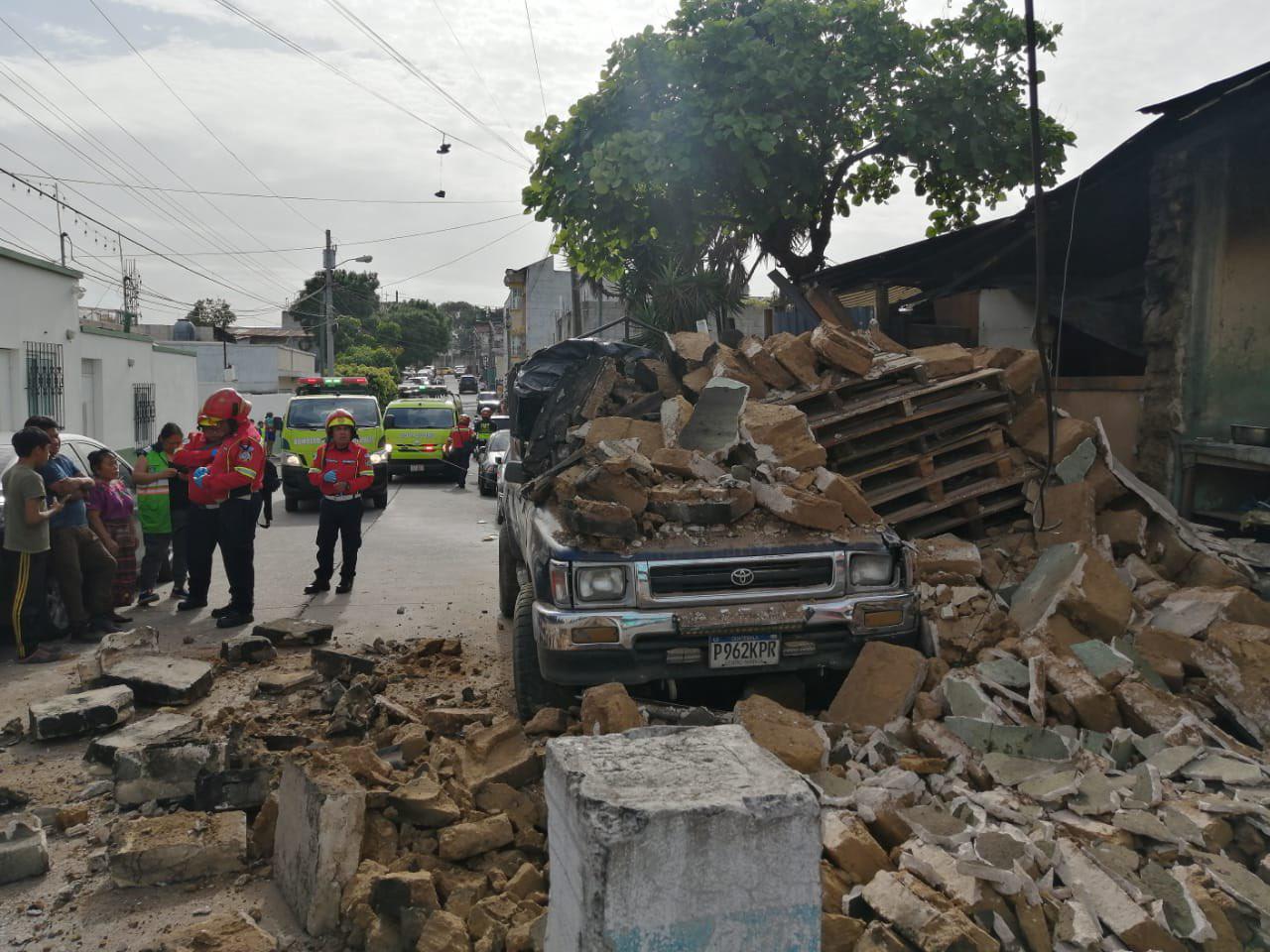
At least seven people have died as a result of a series of earthquakes that have shaken three departments in central Guatemala since Tuesday, according to the National Coordinator for Disaster Reduction (Conred).
In its latest update, Conred reported that 2,138 people have been affected, and 347 have been displaced and are receiving humanitarian assistance.
“Our deepest condolences to the families. There are no words at a time like this, but know that the pain you feel is the pain of the entire Guatemalan people,” said President Bernardo Arévalo, expressing solidarity with the families of the victims. Of the seven deceased, five have been identified, while two remain unidentified as the National Institute of Forensic Sciences (Inacif) continues its work.
To address the emergency, the government has opened nine shelters, currently housing 586 people affected by the tremors.
Since the start of seismic activity, the National Institute for Seismology, Volcanology, Meteorology and Hydrology (Insivumeh) has recorded 340 earthquakes, including 32 in the last few hours, with magnitudes ranging between 1.2 and 5.6.
One of the most severely impacted areas is the Santa María bridge, located at kilometer 39+100 on the road to Palín, Escuintla. Authorities have begun coordinating its repair.
A total of 28 road segments have sustained damage: 11 in Sacatepéquez, 7 in Guatemala, 6 in Chimaltenango, and 4 in Escuintla.
Conred has urged the population to drive cautiously, avoid speeding, take extra care in mountainous areas or on roads with a history of structural issues, and report any emergencies to the 24-hour hotline 119.
Central America
Dengue crisis in Panama: co-circulating serotypes fuel rise in fatal cases
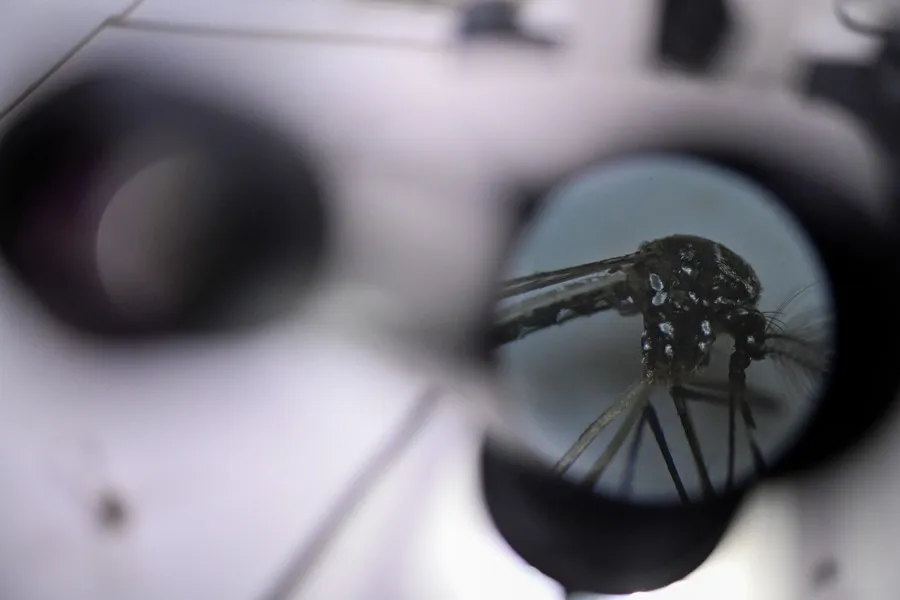
Health authorities in Panama reported on Wednesday that the country has recorded a total of 6,458 dengue cases and 10 related deaths through epidemiological week 25, which spanned from June 15 to 21, 2025.
Of the total reported cases, 576 patients required hospitalization, and 55 cases have been classified as severe, according to a statement released by the Ministry of Health (Minsa).
The metropolitan area and San Miguelito, both in the capital, account for the majority of cases, with 2,753 infections. The reported deaths occurred in the western provinces of Chiriquí (4) and Bocas del Toro (2); the eastern province of Darién (2); and Panamá Este and Coclé, with one death each.
“The national dengue incidence rate during epidemiological week 25 of 2025 is 125.8 cases per 100,000 inhabitants. Most cases have occurred in individuals aged 10 to 59 years,” the official report stated.
Panama is currently experiencing co-circulation of all four dengue serotypes, with DENV-3 and DENV-4 being the most prevalent. This, according to Minsa, “increases the likelihood of severe and fatal cases.”
The Ministry emphasized that dengue is a serious and potentially deadly disease transmitted by the Aedes aegypti mosquito, and noted that it has ramped up nationwide operations through vector control teams to reduce infection rates.
However, officials stressed that citizen participation remains critical, urging the public to eliminate mosquito breeding sites both inside and around their homes.
-

 Central America5 days ago
Central America5 days agoDengue crisis in Panama: co-circulating serotypes fuel rise in fatal cases
-
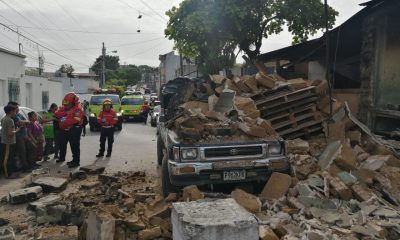
 Central America4 days ago
Central America4 days agoGuatemala hit by over 300 quakes; death toll rises to seven
-
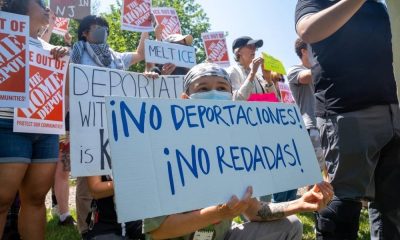
 International5 days ago
International5 days agoICE set to become America’s largest security force under Trump’s $75B immigration overhaul
-

 Central America4 days ago
Central America4 days agoU.S. revokes visas of top Costa Rican lawmakers and constitutional judge
-
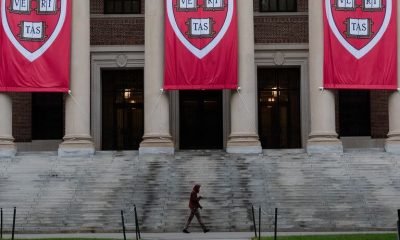
 International5 days ago
International5 days agoHarvard faces Federal pressure over immigration docs, autonomy dispute intensifies
-
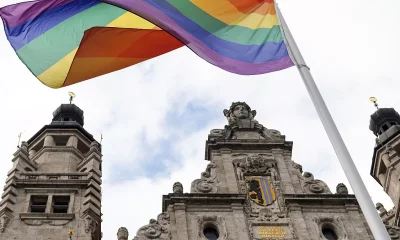
 International4 days ago
International4 days agoGerman parliament orders removal of LGBTQ+ flags amid growing controversy
-

 International3 days ago
International3 days agoSheinbaum slams ICE raids after 355 mexicans detained and 67,000 repatriated
-

 International2 days ago
International2 days agoTwo missing after torrential rains cause flooding in Catalonia
-

 International3 days ago
International3 days agoTrump defends Bolsonaro, hints at talks with Brazil after tariff warning
-
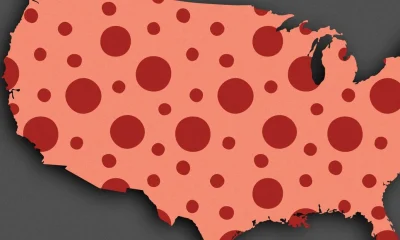
 International4 days ago
International4 days agoCDC reports record measles outbreaks in 39 U.S. jurisdictions this year
-

 International4 days ago
International4 days agoFederal judge halts Trump’s order to end birthright citizenship
-
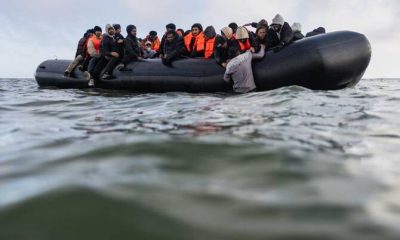
 International4 days ago
International4 days agoUK and France seal innovative migrant exchange deal to curb channel crossings
-
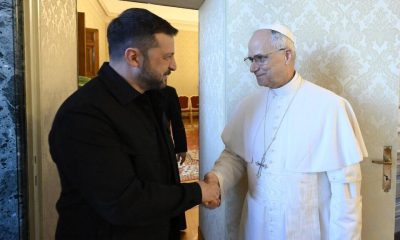
 International4 days ago
International4 days agoUkraine gains $10 billion in commitments during Rome Recovery Forum
-

 International3 days ago
International3 days agoTrump administration begins downsizing ‘bloated’ state department workforce
-

 International4 days ago
International4 days agoSix agents penalized for conduct failures in July 2024 attack on Donald Trump
-

 International22 hours ago
International22 hours agoMexico confirms death of farmworker hurt in ICE raid, calls for investigation
-

 International22 hours ago
International22 hours agoTrump’s 30% tariff undermines U.S.-Mexico talks, but negotiations will continue
-
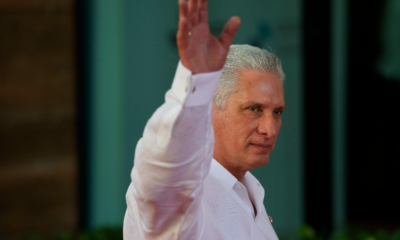
 International2 days ago
International2 days agoU.S. sanctions cuban president Díaz-Canel over regime crackdown on protesters
-
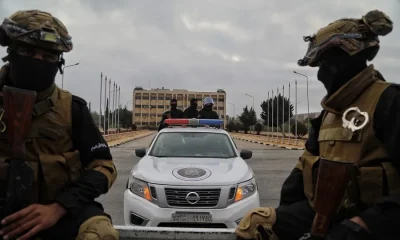
 International59 mins ago
International59 mins agoDeaths from clashes between military groups and clans in southern Syria rise to 30
-

 International59 mins ago
International59 mins agoAnti-mafia operation in Italy with 54 arrested for drug trafficking from Ecuador and Spain
-
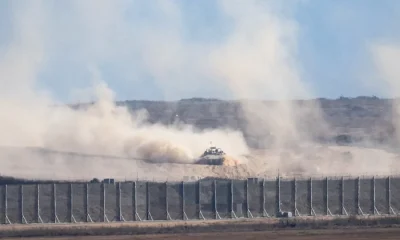
 International54 mins ago
International54 mins agoIsrael kills at least 20 Palestinians in attacks from dawn against the Gaza Strip
-

 International52 mins ago
International52 mins agoPatriot missiles, key anti-missile systems for the defense of the Ukrainian sky
-
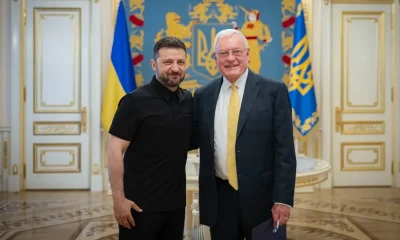
 International51 mins ago
International51 mins agoZelenski talks to Kellogg in Kiev about sanctions against Russia and the sale of weapons to Ukraine
-
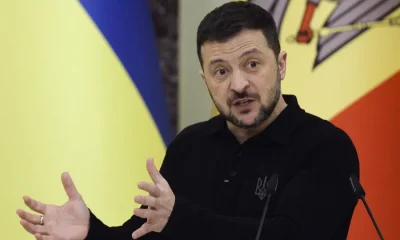
 International50 mins ago
International50 mins agoZelenski proposes the Minister of Economy, Sviridenko, as the new prime minister
-
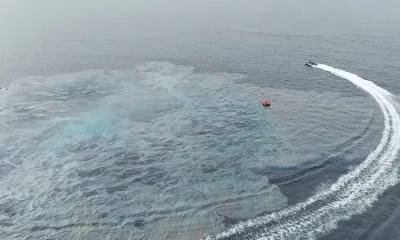
 International53 mins ago
International53 mins agoThe rescue operation of missing people ends after a ship was wrecked by a Houthi attack in the Red Sea
-
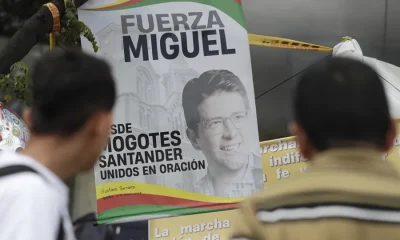
 International47 mins ago
International47 mins agoColombian Senator Uribe Turbay, shows clinical improvement and begins neurological rehabilitation













































































